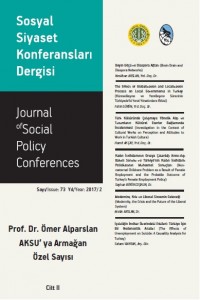Öz
This study analyzes the historical transformation of the “Modern Corporation” expounded by Berle and Means in the early 20th century for the two decades pre-and post-1980. The 80s made an indelible mark on the behavior of Households together with Corporate Managers and Institutional Money Managers toward the risk of holding stocks due to changing economic, political and regulatory settings, hence affecting “Corporate Governance”. The Modern Corporation in the pre-1980 period was envisaged to be a social institution managed by so-called benevolent, elite, managers in a corporate system of consensual decision making called “Stakeholder Capitalism”. In the ensuing decades of the post-1980 period after the Reagan administration’s drastic changes in economic, political and regulatory settings, the Modern Corporation transformed into a lean but over-valued “Contemporary Corporation” of “Stock Market Capitalism”, emboldened with the maxim of “Shareholder Value”. Interestingly, this overvaluation
Anahtar Kelimeler
Kaynakça
- Aksu, Ö. A. (1988). Halka Açık Anonim Şirketlerde Yönetim ve Kontrol. İstanbul: Unpublished Professorial Thesis. Berle, A. A., Means, G. C. (2010). The Modern Corporation & Private Property (11th Edition). New Brunswick: Transaction Publishers. Board of Governors of Federal System. (2017). Z.1 Financial Accounts of United States—Flow of Funds, Balance Sheets and Integrated Macroeconomic Accounts, Fourth Quarter 2016. Washington DC: Federal Reserve Statistical Release. Davis, G. (2015). The Twilight of Berle and Means Corporation. Goranova, M., Verstegen Ryan, Lori. (Ed.), Shareholder Empowerment-A New Era in Corporate Governance, (Chapter 7). New York: Palgrave Macmillan. Goranova, G. M., Verstegen R. L. (Ed.), (2015). Shareholder Empowerment-A New Era in Corporate Governance. New York: Palgrave Macmillan. Herman, E. S.., 1981. Corporate Control, Corporate Power- A Twentieth Century Fund Study. New York: Cambridge University Press. Jensen, M., Meckling W. (1976). Theory of the Firm: Managerial Behavior, Agency Cost and Ownership Structure. Journal of Financial Economics, 3, 305-360. Kaysen, C. (1957). The Social Significance of Modern Corporation. American Economic Review, 47(2), 311-319.
Ayrıntılar
| Birincil Dil | İngilizce |
|---|---|
| Bölüm | Diğer Yayınlar |
| Yazarlar | |
| Yayımlanma Tarihi | 10 Nisan 2018 |
| Gönderilme Tarihi | 1 Ocak 2018 |
| Yayımlandığı Sayı | Yıl 2017 Sayı: 73 |

